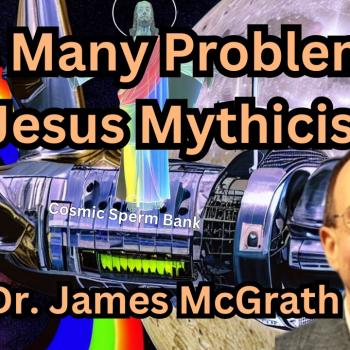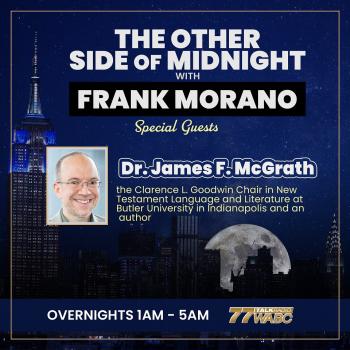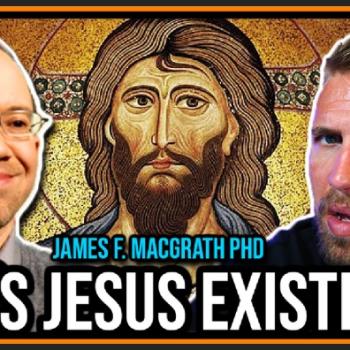Mythicists regularly claim (as one commenter on this blog recently did) regarding Paul that “Our earliest Christian source claimed to have learned nothing from the Christians who came before him. He claimed to know what he knew by divine revelation.”
Since the subject has come up once again, in the same form in which it always seems to, let me devote a blog post solely to this topic, in the hope that any mythicists who desire not to be like creationists (who are notorious for repeating the exact same arguments even though they have been addressed adequately on countless other occasions) may at least show a willingness to consider the evidence and respond.
Here are the main relevant points that need to be considered.
But when God, who set me apart from my mother’s womb and called me by his grace, was pleased to reveal his Son in me so that I might preach him among the Gentiles, my immediate response was not to consult any human being. I did not go up to Jerusalem to see those who were apostles before I was, but I went into Arabia. Later I returned to Damascus.
Important things to note are (1) that Paul had previously persecuted the church, and so was not entirely unaware of what Christians had to say, (2) his aim here is to emphasize that his authority is not dependent on the apostles in Jerusalem, (3) he does not in fact say that he received everything he knew about Jesus or the Gospel by supernatural revelation, and finally (4) if he did mean to claim that everything that he knew was by supernatural revelation, no historian would believe him, since there is obviously a more mundane explanation available for how Paul knew the things that he did.
Moreover, in 1 Corinthians 15, Paul emphatically claims that the basic message he proclaims is the same one other apostles also preach. He says this to a group consisting not only of people who say “I am of Paul” but also others who say “I am of Cephas/Peter” and thus would be well poised to call Paul out on this if he were lying. Paul disagreed with other Christians about whether circumcision was to be required of Gentile converts, but does not seem to have disagreed about the basic core Gospel message. Here is how Paul puts it in 1 Corinthians 15:1-11:
Now, brothers and sisters, I want to remind you of the gospel I preached to you, which you received and on which you have taken your stand. By this gospel you are saved, if you hold firmly to the word I preached to you. Otherwise, you have believed in vain.
For what I received I passed on to you as of first importance: that Christ died for our sins according to the Scriptures, that he was buried, that he was raised on the third day according to the Scriptures, and that he appeared to Cephas, and then to the Twelve. After that, he appeared to more than five hundred of the brothers and sisters at the same time, most of whom are still living, though some have fallen asleep. Then he appeared to James, then to all the apostles, and last of all he appeared to me also, as to one abnormally born.
For I am the least of the apostles and do not even deserve to be called an apostle, because I persecuted the church of God. But by the grace of God I am what I am, and his grace to me was not without effect. No, I worked harder than all of them—yet not I, but the grace of God that was with me. Whether, then, it is I or they, this is what we preach, and this is what you believed.
In addition, we also have evidence from the Gospel of Matthew, which takes a different stance than Paul with regard to the Torah, of agreements between Paul and other Christians who disagreed with him, such as regarding the practice of the Lord’s Supper.
The only real options are (1) that Paul did in fact miraculously receive the same information that other Christians had, or (2) Paul received information about the Christian Gospel from other human beings, whatever he might or might not say to the contrary.
Since I know of no mythicist or mainstream historian who accepts option #1, can mythicists please stop using this unpersuasive bunk as part of their case for mythicism? I realize that, when it comes to the major tenets of mythicism, unpersuasive bunk may be all you have to work with. But this particular claim seems so particularly bad (not to mention unpersuasive) that I would expect anyone who thinks about the matter even a little to wish to distance themselves from it – even as some creationists have drawn up lists of arguments which are so badly discredited and unpersuasive that creationists ought not to use them.
















